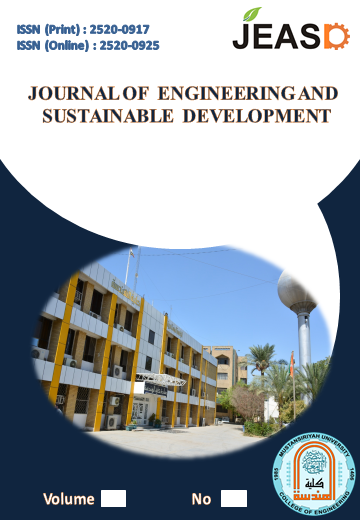 ISSN (online): 2980-3780
ISSN (online): 2980-3780
DOI: 10.70170/sjeps7695
Accreditation number of EOEA: 20Q0015718
Accreditation Standards : Q2
Stardom Scientific Journal of Educational and Psychological Studies is a refereed scientific journal issued by Winning Trading Strategy Limited Sirket- Stardom University– Istanbul- Turkey. The journal aims to provide a platform for publishing research in accordance with the approved international scientific standards, and to improve production and scientific research in the field of applied sciences and technology. The journal is issued four times a year in electronic version, and accepts papers and research studies written in both Arabic, English and Turkish.
Vision:
To be a leading center for research and innovation in educational and psychological studies, fostering knowledge that enhances learning, mental well-being, and human development.
Mission:
- Advancing scientific knowledge in education and psychology through high-quality research.
- Developing innovative teaching and learning strategies that enhance student success.
- Promoting mental health awareness and psychological well-being in educational settings.
- Preparing educators, counselors, and researchers with evidence-based skills for lifelong impact.
- Engaging with communities, policymakers, and institutions to improve educational and psychological outcomes.
Aims and Scope
Stardom Scientific Journal of Educational and Psychological Studies is a journal for the publication of peer reviewed, original research for all aspects of Psychlogical and Educational Studies.
The journal scope in Educational majors Teaching and Learning Strategies, Educational Psychology, Assessment and Evaluation, Educational Policy and Administration, Higher Education and Professional Development, Inclusion and Diversity in Education, Comparative and International Education and Psychosocial Aspects of Education. On the other hand the psychological scope accepts those subjects such as, Cognitive and Experimental Psychology, Clinical and Counseling Psychology, Developmental Psychology, Social and Cultural Psychology, Educational and School Psychology, Health Psychology, Industrial and Organizational Psychology, Forensic and Legal Psychology, Neuropsychology and Biological Psychology, Positive and Humanistic Psychology and all related subjects.
Publishing Frequency
Quarterly (from 2023)
Open access
Stardom Journal is committed to open access and all content is freely and immediately available to all after publication.
Use of the Digital Object Identifier (DOI)
A DOI is guaranteed by no means to change, so it can be used as a permanent link to any electronic article. The journal DOI prefix account is (10.70170).
Plagiarism Policy
All manuscripts under review or published with Stardom Journal are subject to screening using Plagiarism Prevention Software Turnitin. Plagiarism is a serious violation of publication ethics. Other violations include duplicate publication, data fabrication and falsification, and improper credit of author contribution. Thus, Plagiarism or Fraudulent or knowingly inaccurate statements constitute unethical behavior are unacceptable, and submitting the same manuscript to more than one journal concurrently constitutes unethical publishing behavior and is unacceptable. It is necessary to mention that Stardom Journal may ignore a duplicated manuscript of up to 20%.
The development of CrossCheck is a service that helps editors to verify the originality of papers. CrossCheck is powered by the Turnitin software. For a searchable list of all journals in the CrossCheck database, please visit https://www.turnitin.com/
All new submissions to Stardom Journal are screened using https://www.turnitin.com/. Editorial board members may also choose to run a similarity report at any other point during the review process or post-publication. The default similarity report view gives the percentage of the text of the manuscript which has overlap with one or more published articles. Figures and equations cannot be checked at present. Note that a high similarity score does not necessarily indicate plagiarized text. A similarity score of 30% could mean 30% text in common with one source but could equally mean 1% text in common with 30 different sources. Re-used text that has been legitimately cited in the Bibliography may all contribute to the similarity score. It is necessary to mention that Stardom Journal may ignore a duplicated manuscript of up to 20% similarity ratio including the AI usage. It is the responsibility of author(s) to enssure that the similarity index is within the 20% limit till the publication of the article. In the meantime, the AI index must be less than 5%. The subject knowledge of an editorial expert is vital in order to interpret the CrossCheck report and determine whether there are any grounds for concern.
Digital Archiving
Stardom Journal has electronic backup and preservation of access to the content of the journal via the archive system CLOCKSS. It offers decentralized and distributed preservation, seamless perpetual access, and preservation of the authentic original version of the content. In addition, all the journal’s published articles are now accessible through the journal










